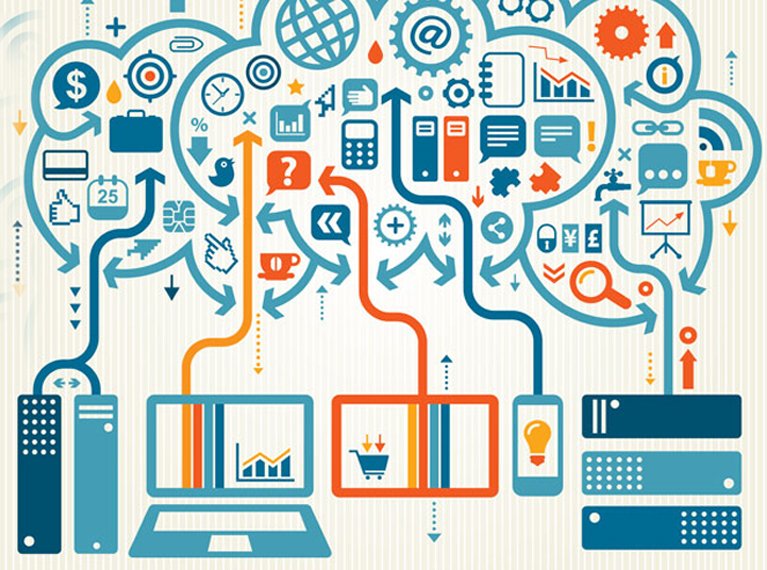We have seen that technology is having a tremendous effect on the creation of products. Products are more complex than they used to be in many ways. Take the mobile telephone as an example. It used to just make and receive calls, and texts. Now it does a whole variety of other tasks. This is achieved through a range of different components such as microprocessors, sensors, hardware and storage, among others. These types of products are transforming industry and creating new types of competition that had not been imagined in the past. They change the boundaries of industry and even lead to new industries emerging. Writing for Harvard Business Review in 2014, Michael Porter and James E. Heppelmann state that:
“Smart, connected products offer exponentially expanding opportunities for new functionality, far greater reliability, much higher product utilisation, and capabilities that cut across and transcend traditional product boundaries.”
This leads to questions about value, data, relationships with business partners, channels, and the way companies work together. The Internet of Everything is set to transform this even further, by transforming the tasks that things do and adding value.
How will the Internet of everything impact the economy?
Porter and Heppelmann believe that we are now in a third wave of transformation, of which IT is a major component. Sensors and processors that allow products to connect, in conjunction with cloud data storage are almost miraculous in the way that they transform the ability of products to perform. It is believed that this will lead to a giant jump in productivity, changing the value chain and leading to ever greater levels of innovation and productivity as well as economic benefits.
Smart products are said to be made up of three components. There is the physical aspect, such as the shell or frame of a phone. There are then smart components such as sensors and microprocessors among others that create an operating system. A third feature is connectivity. This connectivity can be on a one-on-one basis such as the product to the user or the product to the manufacturer, a one-to-many basis such as linking cars to the manufacturer, and a many to many basis where varied products connect to varied other product types.
Smart, connected products are they basis of the Internet of Everything. These products can do all kinds of things that prior products could not, at least not as efficiently. The combination of being smart and being connected provides a range of product functions such as control, optimisation, monitoring and autonomy. Each is helpful in and of itself, but each also offers value in its own right. In terms of monitoring it is possible to monitor the condition, operation or external environment of a product, among others, or even to understand how the product is being utilised. This can lead to product changes that are better for customers and the business. These products can also be controlled remotely if certain conditions are met. For example, if it gets too cold, turn the heating on, and so on. This offers customisation opportunities. Then there is optimisation. The data and the control mean that companies can improve product performance in ways never before seen. This can also be done on the fly, which was not possible in the past in many cases. Finally, autonomy can be achieved, and the example is provided of a robot hoover that scans and senses and then decides to clean.
Overall these types of products have the potential to change the competition in an industry and in other industries as well by changing the meaning of an industry. This means that organisations can offer so much more to consumers. Products have been evolving into a smart products, which in turn evolve into a smart connected products, which has then evolved into a product system, which finally is now able and has the potential to evolve into a system of systems.first movers will have
The first ones to move will have considerable advantage as they can transform industries and this can generate consolidation in at least some industries. However, the basics that business school students are taught about strategy still applies: companies compete on price or differentiation or both. So not everything has changed.

Paula Newton is a business writer, editor and management consultant with extensive experience writing and consulting for both start-ups and long established companies. She has ten years management and leadership experience gained at BSkyB in London and Viva Travel Guides in Quito, Ecuador, giving her a depth of insight into innovation in international business. With an MBA from the University of Hull and many years of experience running her own business consultancy, Paula’s background allows her to connect with a diverse range of clients, including cutting edge technology and web-based start-ups but also multinationals in need of assistance. Paula has played a defining role in shaping organizational strategy for a wide range of different organizations, including for-profit, NGOs and charities. Paula has also served on the Board of Directors for the South American Explorers Club in Quito, Ecuador.












